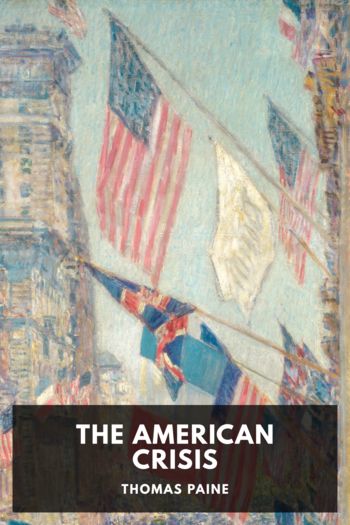Short Fiction, Vladimir Korolenko [finding audrey TXT] 📗

- Author: Vladimir Korolenko
Book online «Short Fiction, Vladimir Korolenko [finding audrey TXT] 📗». Author Vladimir Korolenko
There was a riddle more dreadful to me than all the ghosts in the old castle. Let the Turks pining under ground be never so terrible and the old count never so cruel, they all smacked of the fantastic horror of ancient legends. But here was something incredibly dreadful taking place under my very eyes. Something formless, pitiless, cruel, and heavy as a stone was hanging over this little being’s head, draining the colour from her cheeks, the brightness from her eyes, and the life out of her limbs. “It must be done at night,” I thought, and something wrung my heart until it ached.
I, too, subdued my boisterous ways under the influence of this feeling. Suiting our actions to our little lady’s quiet gravity, Valek and I would put her down somewhere upon the grass and collect flowers and little bright-hued pebbles for her, or else we would catch butterflies, or make her sparrow traps of bricks. Sometimes, stretched beside her on the grass, we would lie gazing at the sky and, as we watched the clouds sailing high above the chapel’s crumbling roof, we would tell Marusia stories or talk with one another.
These conversations cemented the friendship between Valek and me more firmly every day, and it grew steadily in spite of the sharp contrast that our characters presented. He opposed a sorrowful gravity to my impulsive high spirits and won my respect by the masterly, independent way in which he spoke of grown-up people. He also told me much that was new to me, things of which I had never thought before. Noticing that he spoke of Tiburtsi as of a comrade I asked:
“Is Tiburtsi your father?”
“He must be,” he answered thoughtfully, as if the question had never before occurred to him.
“Does he love you?”
“Yes,” he answered much more decidedly this time. “He is always doing things for me, and sometimes, you know, he kisses me and cries.”
“He loves me and cries too!” Marusia chimed in, with a look of childish pride.
“My father doesn’t love me,” I said sadly. “He never kisses me. He is a horrid man.”
“No, no,” Valek objected. “You don’t understand. Tiburtsi says he isn’t. He says the Judge is the best man in the town, and that the town would have been ruined long ago if it had not been for your father and the Priest who has just gone into a monastery, and the Jewish Rabbi. Those three—”
“What have those three done?”
“The town hasn’t been ruined because they were there, so Tiburtsi says, because they look after the poor people. Your father, you know, once sentenced a count to punishment.”
“Yes, that’s so. The count was very angry.”
“There, you see! It’s no joke to sentence a count.”
“Why?”
“Why?” Valek repeated. “Because a count isn’t an ordinary person. A count does what he pleases and drives in a coach, and then that count had money. He would have given money to any other judge, and the judge would have let him go and condemned a poor man.”
“Yes, that’s true. I heard the count shouting in our house: ‘I can buy and sell every one of you!’ ”
“And what did the Judge say?”
“My father said: ‘Get out of my sight!’ ”
“There, now, you see! And Tiburtsi says he isn’t afraid to drive a rich man away, but when old Ivanovna came to him with her rheumatism he had a chair brought for her. He’s like that! Even Turkevich has never raised a rumpus under his windows.”
That was true; when he was on his denunciatory expeditions Turkevich always passed by our windows in silence, and sometimes even took off his cap.
All this set me thinking deeply. Valek was showing me my father in a light in which I had never before seen him, and the boy’s words touched chords of filial pride in my heart. I was pleased to hear these praises of my father coming from Tiburtsi who “knew everything,” but there still quivered in my breast, with a pang of aching love, the bitter certainty that this man never could and never would love me as Tiburtsi loved his children.
VI Among the “Grey Stones”Several days passed. The “bad company” ceased to appear in town, and I wandered through the streets in vain, feeling sad and lonely, waiting for them to return so that I might hasten to the hill.
Only the Professor came down once with his sleepy walk; neither Tiburtsi nor Turkevich appeared. I was thoroughly unhappy, for not to see Valek and Marusia had come to be a great loss to me. But one day as I was walking down the street with hanging head Valek suddenly laid his hand upon my shoulder.
“Why don’t you come to see us any more?” he asked.
“I’m afraid to—I haven’t seen your people in town.”
“O—oh—and I never thought of telling you! Our people aren’t at home; you can come. And I thought it was something else!”
“What?”
“I thought you were tired of coming.”
“No, no! I’m coming at once; I even have the apples here with me.”
At mention of the apples Valek suddenly turned toward me as if he wanted to say something, but nothing came, and he only gave me an odd look.
“No matter, no matter,” he dismissed the question, seeing that I was looking expectantly at him. “Go along up the hill; I have something to do; I’ll catch you up on the way.”
I walked along, glancing back frequently, expecting to be overtaken by Valek, but I had climbed the hill and reached the chapel before he had appeared. I stopped in doubt as to what I ought to do. Before me lay the graveyard, desolate and hushed,





Comments (0)